Quality UK home care for your loved one
Home care offers professional, flexible support that enables individuals to live safely and independently in their own homes.
Whether you’re looking for occasional visiting care or full-time live-in care, Elder's technology and expert care advisors will help match you with a carer that meets your loved one’s care needs, personality and interests.
See how Sharon eliminated stress over distance and found trusted support.
Find a carerCall us6,000+ Carers
Select from over 6,000 qualified carers
Fast matching
Care can begin in as little as 24 hours
Across Great Britain
We have organised care in every GB postcode
Cost efficient
Costs on average 35% less than traditional services

Home care explained
What is home care?
Home care is professional support provided in your own home. It can include help with personal care, household tasks, medication reminders, mobility support, and companionship.
Who is home care suitable for?
Home care is suitable for older adults, people with long-term conditions, those recovering from illness or surgery, or anyone who needs extra support to live independently at home.
How quickly can home care start?
In many cases, home care can begin within 24–48 hours, depending on your location and care needs.
Is home care an alternative to a care home?
Yes. Home care allows people to remain in familiar surroundings while receiving tailored, one-to-one support, often providing greater flexibility and comfort than residential care.
Which types of home care services does Elder offer?
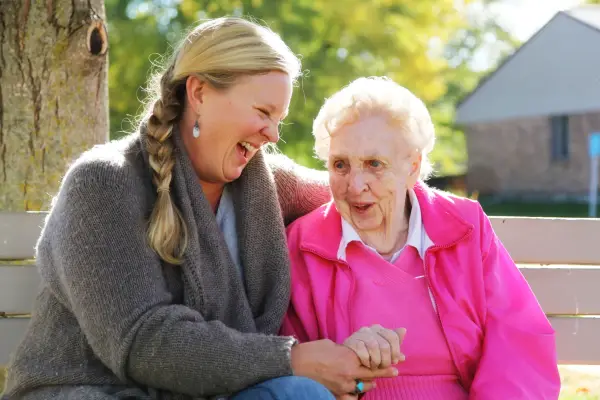
Live-in care
Long-term 24-hour support
- A carer lives in the home to provide round-the-clock support
- Suitable for people living with conditions like dementia, reduced mobility, etc.
- For long-term care needs
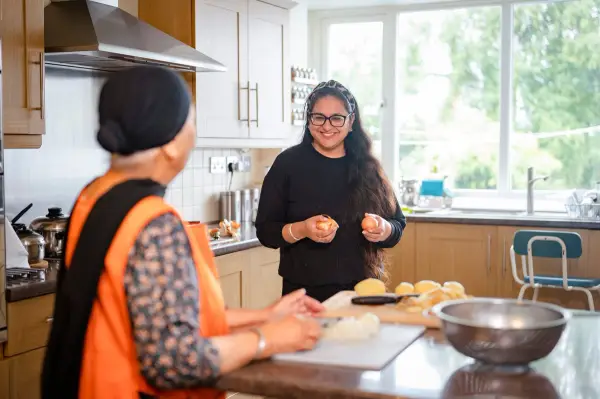
Respite care
Temporary 24-hour support
- A carer moves in for a few days to provide round-the-clock support
- Suitable to cover for a main caregiver or for a temporary increase in care needs
- Minimum duration of 3 days
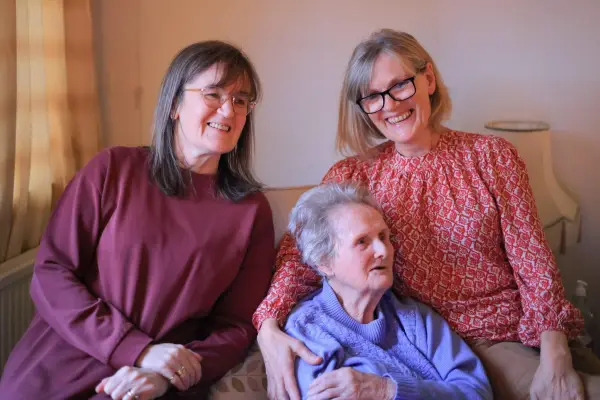
Visiting care
Flexible home visits
- Book as many hours as you need for help in the comfort of your home
- Support with everyday tasks like grooming, walks, cooking, etc.
- From as little as 1 hour per week
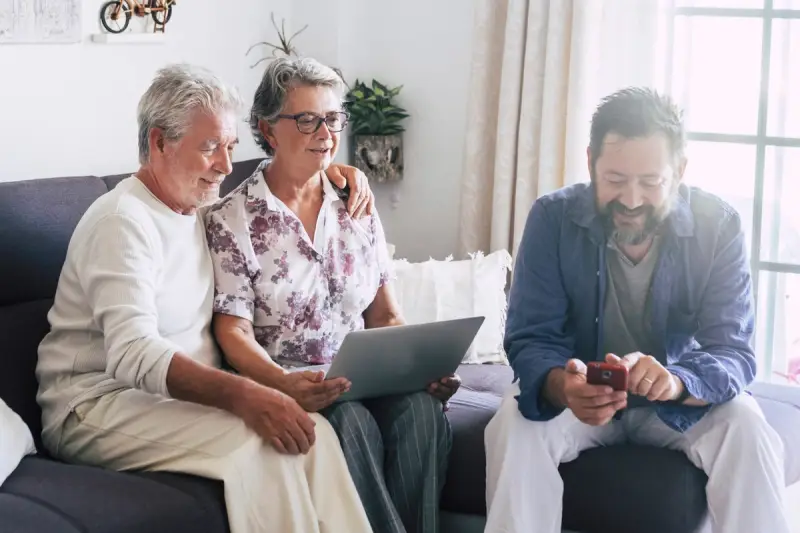
Average home care costs in the UK
Hourly home care costs
Most home care is charged by the hour. In 2026, typical hourly costs are:
- Companionship care - £22 to £28 per hour
- Personal care - £26 to £35 per hour
- Dementia or complex care - £30 to £40+ per hour
Some providers may charge higher rates for short visits, evenings, weekends or bank holidays. It’s always worth checking what is included when comparing care packages.
Home care FAQs
Still have questions?
0333 920 3648The cost of home care depends on the type of support you need, how often care is provided, and your location. Visiting care is typically charged hourly, while live-in care is charged at a daily or weekly rate.
When choosing home care, you can hire a private carer, use a managed care agency, or go through an introductory service:
- Private carers offer more choice and flexibility without agency fees, but you’ll be responsible for background checks, contracts, and payments.
- Managed care agencies handle all this for you, providing trained staff and care plans, but at a higher cost and with less flexibility.
- Introductory services like Elder act as a middle ground by pre-screening self-employed carers and managing payments, while you keep control over care arrangements and daily routines.
Yes. Home care can be arranged short-term, such as after hospital discharge, or long-term for ongoing support. This is where hourly care can be a great care solution.
While home care includes essential support with personal care and daily tasks, it typically doesn’t cover medical procedures. The carers on Elder’s platform can help with things like bathing, companionship, and medication reminders, but they’re not trained to carry out clinical tasks. For more information, read this guide.
In most cases, in-home care is not free, but there are ways to receive financial assistance. If your loved one needs care, your first step should be to contact their local council for a care needs assessment. If care is recommended, the council will carry out a financial means test to decide whether they’re eligible for help with costs.
Their level of support will depend on their income and assets:
- England: They may qualify for local authority funding if they have savings below £23,250.
- Wales: The savings threshold is £50,000.
- Scotland: They will need savings under £35,000 to be eligible, though some personal care is funded regardless of income.
Even if your loved one is entitled to support, you may still need to contribute to their care costs, especially if your chosen provider charges more than the council’s standard rate. In this case, you or your family would need to cover the difference.
There are a few ways to make care at home more affordable:
- Local council support: Start by requesting a care needs assessment from your loved one’s local council. If your loved one qualifies, they may offer full or partial funding depending on their financial situation. You can also request direct payments to choose your own care provider.
- NHS Continuing Healthcare (CHC): If your loved one has ongoing, complex health needs, they may qualify for free NHS-funded care at home. To apply, speak with their GP, district nurse, or hospital discharge team.
- State benefits: Your loved one may also be entitled to benefits such as Attendance Allowance, Pension Credit, Cold Weather Payments, or a reduction in council tax, which can help offset the cost of care.
To explore your options in more detail, visit our funding your care page for up-to-date information and helpful resources.
Which tasks can a home carer help with?
Personal care
e.g. help with washing, toileting, and prompting medication
Dressing and grooming
e.g. shaving and hairstyling
Meal preparation
e.g. cooking meals to dietary requirements and tastes
Light housekeeping
e.g. vacuuming, keeping surfaces clean and doing laundry
Running errands
e.g. going to the shops or picking up prescriptions
Companionship
e.g. providing company and encouraging hobbies and interests
Pet care
e.g. feeding and exercising pets
Mobility support
e.g. encouraging gentle and suitable exercise
Light gardening
e.g. watering flowers and keeping pathways clear
Admin support
e.g. keeping on top of post, paperwork, and appointments
Medication prompting
e.g. ensuring medication is taken correctly
Ventilation and oxygen support
e.g. BiPAP or CPAP Support
Specialist drug administration
Including Controlled Drug Administration, Covert Medication Administration, Glucose readings via finger pricks, Injections, Pessaries, Enemas, Suppositories
Stoma care
PEG care
Wound care
What's the difference between home care and care home?
Choosing between home care and a residential care home depends on your loved one’s unique needs, preferences, and overall health. Understanding the key differences can help you feel more confident about what’s right for them.
Why home care is often the preferred choice
Home care lets your loved one stay in the comfort of their own home with personalised, one-to-one support. They can keep their routines, enjoy familiar surroundings, and receive care tailored to their needs — without the disruption of moving away.
When a care home might be a better fit
A care home can be ideal for those needing constant supervision or specialist medical support. It offers 24/7 care and social activities, though often with less flexibility and independence than staying at home.
Supporting independence with care at home
Home care helps your loved one stay independent and in control of their daily life. With Elder, every care plan is built around their preferences, so they can live safely and comfortably in the place they love.
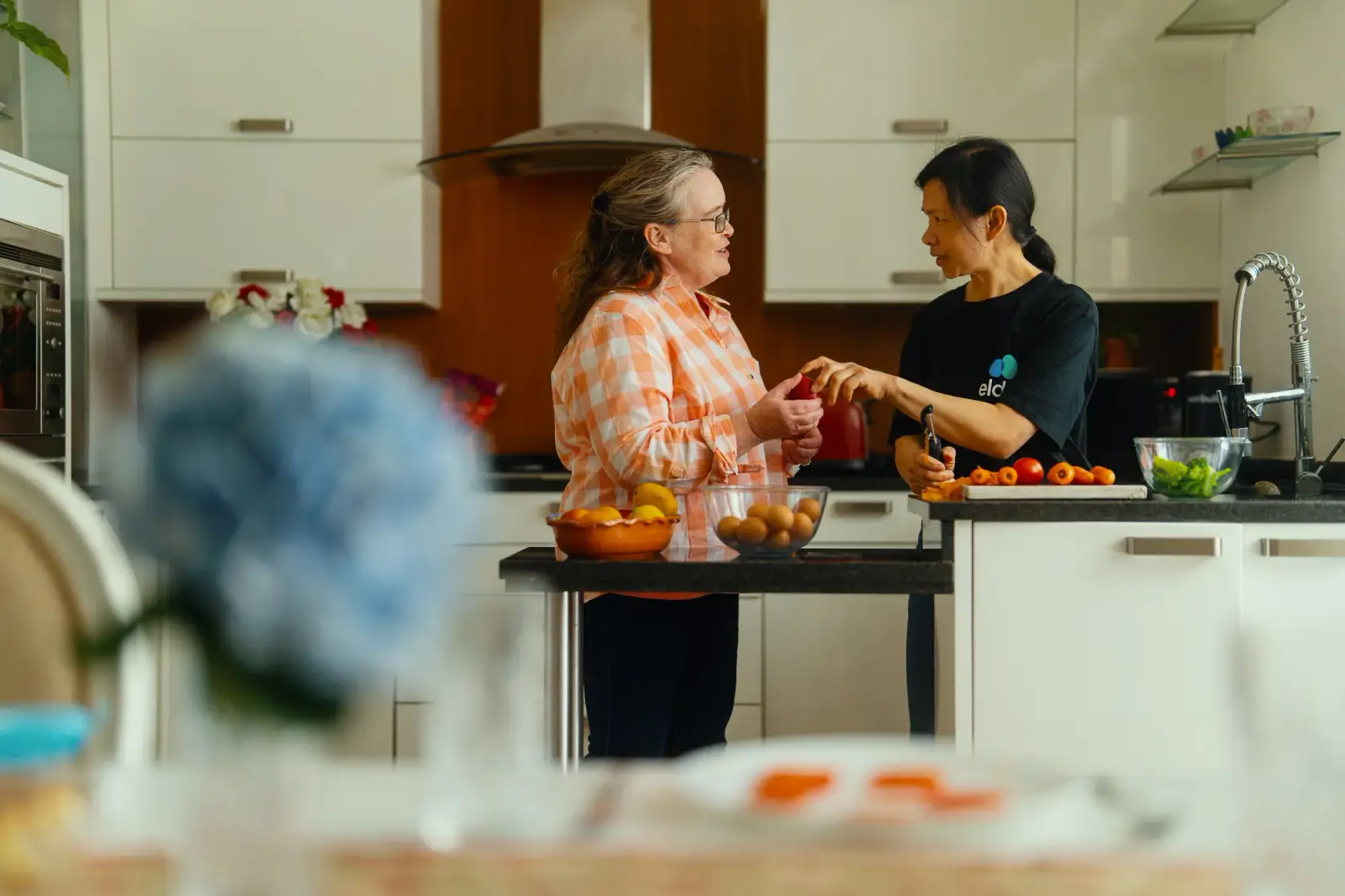
Customer stories: Finding trusted live-in care
Finding the right care can feel overwhelming, but hearing how others made the decision can help. Explore real stories of families who found trusted support through live-in care.

Live-in care vs care home: Kenn and Nicole’s story
Kenn and Nicole share how live-in care allowed their parents to stay safe and happy in their own home, avoiding the stress of a care home.
Read Kenn and Nicole's story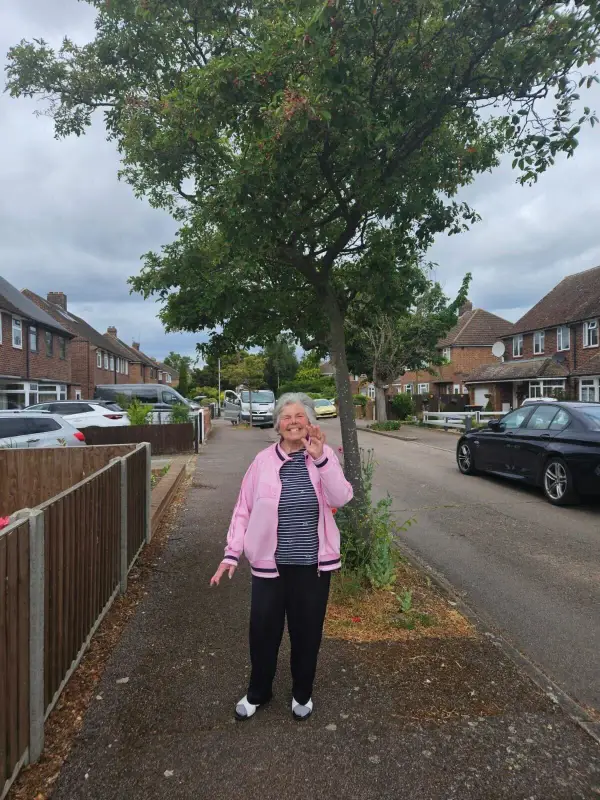
How home care gave Sharon peace of mind
Sharon shares how home care supported her mum Sheila and gave her peace of mind knowing her mum was cared for and never alone.
Read Sharon's story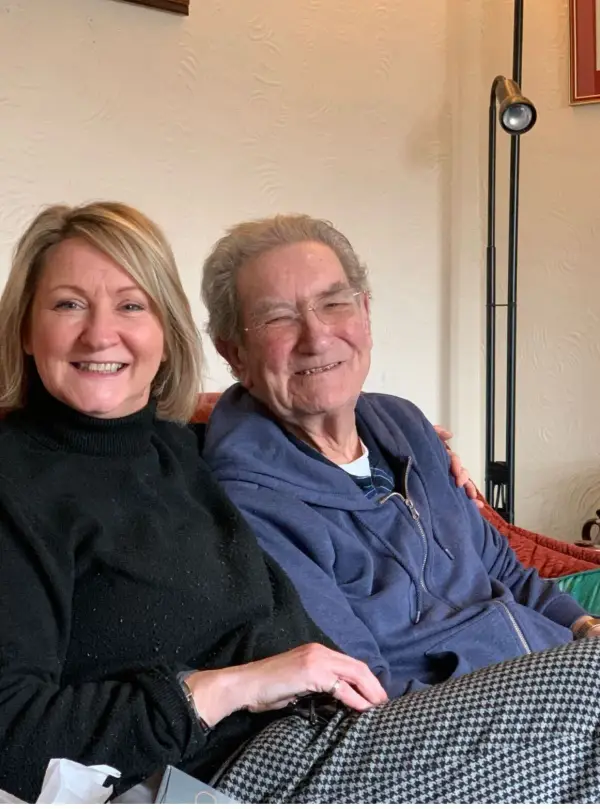
How live-in care allowed Hayley's dad to remain at home
Hayley shares how live-in care gave her dad tailored support, enabling him to regain his independence after being discharged from hospital.
Read Hayley's story
How do I arrange home care with Elder?
Share your care request
Tell us your care requirements using our request form, including the type of care you’re looking for, any specialist skills you need, and what daily life looks like.
Select your carer
You’ll start receiving profiles of suitable self-employed carers within 24 hours. Chat to them online or arrange a phone or video call, before choosing who you like best.
Manage care
Once your agreement with your carer begins, use your MyElder account to chat with them and the Elder team, manage your schedule and care information, and find respite cover if you need it.